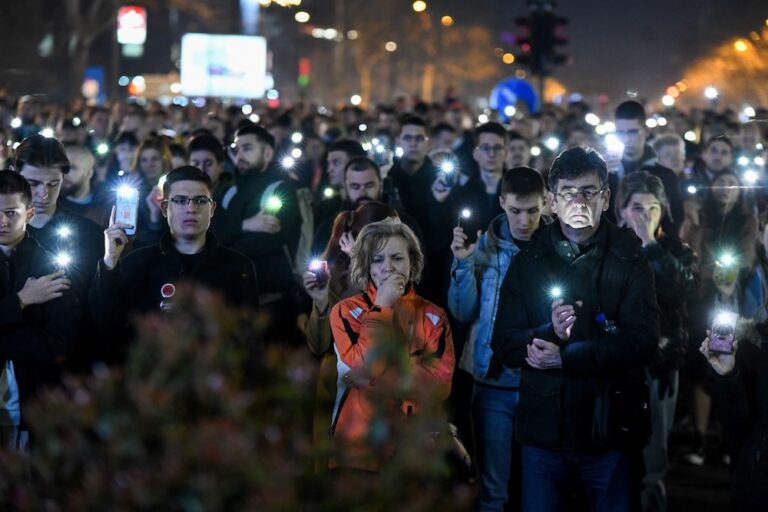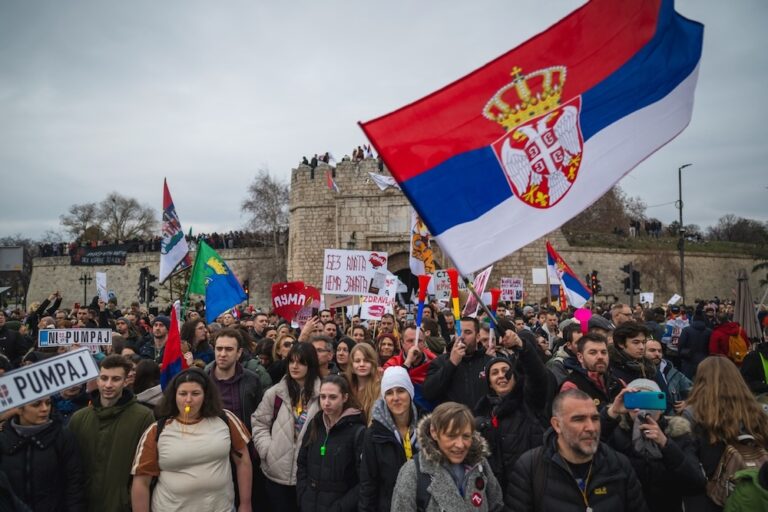(IFJ/IFEX) – The following is a 29 May 2004 IFJ media release: IFJ Says Kosovo Report Lets Politicians “Off the Hook” By Blaming Media for Violence The International Federation of Journalists today backed its affiliate, the Professional Journalists Association of Kosova, in their protests over a report jointly issued by the Organisation for the Security […]
(IFJ/IFEX) – The following is a 29 May 2004 IFJ media release:
IFJ Says Kosovo Report Lets Politicians “Off the Hook” By Blaming Media for Violence
The International Federation of Journalists today backed its affiliate, the Professional Journalists Association of Kosova, in their protests over a report jointly issued by the Organisation for the Security and Co-operation in Europe, OSCE, and the Temporary Media Commissioner in Kosovo, which accuses media over their coverage of tensions between Serb and Albanian communities that led to violent clashes and several deaths in March 2004.
The report, supported by the newly appointed OSCE Representative for Freedom of the Media, Miklos Haraszti, is unconvincing and fails to establish any evidence of systematic attempts to distort news coverage and incite violence.
“Even worse,” said Aidan White, IFJ General Secretary, at the World Congress of the IFJ, being held in Athens this week, “It looks like politicians letting themselves off the hook over policies and actions that are the root causes of violence.”
While the report reveals a number of failures of Kosovan journalists in their coverage of an incident involving drowned children to properly check their facts and provide a fully balanced coverage, it does little to prove any systematic incitement.
“Journalists should be prepared to acknowledge their own failures and take measures to improve their performance, but that does not justify blaming journalists for violence that has its roots elsewhere,” said White. “The effect is to divert attention from the real failure of policy of the OSCE and the UN governing Kosovo.”
White added that by associating itself with the report, the OSCE Office for the Freedom of the Media risks doing great damage to the causes of thousands of journalists fighting for press freedom throughout the OSCE region.
“Journalists from Belarus to Azerbaijan, from the Ukraine to Kazakhstan are persistently targeted and held responsible by authoritarian regimes seeking scapegoats for failed policy,” said White. “These regimes may be comforted to see that the OSCE shares their concerns about irresponsible media.”
The IFJ has welcomed the commitment of Haraszti in his pledge to open renewed dialogues with the media community and, in particular, to support self-regulation in Kosovo, but his role should always be to deal with attempts to oppress media freedom instead of providing ammunition for others who try to rein in the freedom of media and journalists when it suits their political interests.
The IFJ represents over 500,000 journalists in more than 110 countries.


